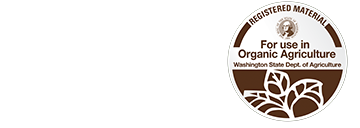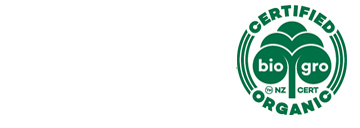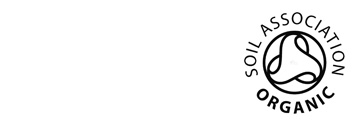Certification

The WSDA Organic Program
The Washington State Department of Agriculture (WSDA) Organic Program evaluates products for use in organic production, processing and handling under the USDA National Organic Program (NOP) to assure compliance. These standards assure consumers that products with the WSDA For Use In Organic Agriculture seal meet consistent, uniform standards.

California Department of Food & Agriculture – Organic Input Material Program
The Fertilizing Materials Inspection Program (FMIP) is an industry funded program that ensures consumers receive fertilizing materials that meet the quality and quantity guaranteed on the product label. Investigators located throughout the state conduct routine sampling and inspections, respond to consumer complaints, and enforce the laws and regulations that govern the manufacturing and distribution of fertilizing materials in California. Environmental scientists and Research Analysts review product labels for misleading claims and compliance with the California Fertilizing Materials Law and Regulations.
The Organic Input Material (OIM) Program registers fertilizing materials to be used in organic crop and food production. The program is mandated by the Legislature and supported by the industry. Products claiming to be appropriate for use in organic production are verified to comply with the California Fertilizing Materials Law and Regulations and USDA National Organic Program Standards. Effective January 2012, OIMs distributed in California shall be registered with the FMIP.
Ecocert
Kelpak 24201 (International), Fervelita Ecklokelp and Kelpak Canada have been inspected and found suitable for use in Organic Agriculture conforming to the annexes of the (EU) regulation no. 2018/848 and 2021/1165 and of NOP Regulation as attested by Ecocert.
Ecocert is a pioneer and global leader in the certification of organic products whose certificates are recognised in all organic markets worldwide.
Until 2017 Kelpak 24201 was inspected and attested for use in organic agriculture by both IMOswiss AG and Ecocert. Although IMOswiss AG has been part of the Ecocert Group since 2013, our organic formulation was inspected by both entities for global recognition. This certification service has since been re-organised within Ecocert.

KIWA BCS Öko-Garantie GmbH
KIWA BCS Öko-Garantie GmbH is an independent and private controlling agency, operating since 1992, which certifies organic products worldwide in accordance with international regulations and private standards. They are based in Germany with representing agencies in 4 continents; Africa, America, Asia and Europe. They are also a member of IFOAM (International Federation of Organic Agricultural Movements), an umbrella group for all organic certifiers worldwide.

Australian certified organic
Australian Certified Organic (ACO) is Australia’s largest certifier for organic and biodynamic produce and has over 1500 operators within its certification system. ACO provides market advantage based on compliance to some of the highest standards available for organic worldwide: Australia, Europe and Taiwan (AQIS), Japan (JAS), US (USDA NOP), international (IFOAM), Canada (COR), Korea and others.

BioGro Certification
BioGro is New Zealand’s leading organic certifier and is internationally recognised and accredited. Certifying and accrediting over 800 producers, farmers and manufacturers across New Zealand and the Pacific, Biogo assists producers to meet international organic regulations in key export markets including Europe, Canada, the US and parts of Asia, giving consumers trust in the mark of a genuine organic product. The BioGro logo guarantees that a product is made without animal testing, genetic modification and the routine use of synthetic pesticides. It is the mark of a genuine organic product.

The Soil Association
The Soil Association Certification is an independent certification body. It carries out inspections and awards organic certification to farms and businesses that meet the correct standards for the UK.
The Soil Association’s standards guarantee the following:
Certified organic ingredients are used
No genetically modified (GMO) ingredients
Product labelling is clear and honest
Ingredients must be environmentally friendly (biodegradable)
Minimal processing
OF&G Organic
This programme is based on the European Organic Regulation (EC 834/2007), which forms the core of the standards to be adhered to, by operators across the EU. OF&G provides an Approved Inputs Scheme for products which could be approved for use in organic farming or processing.
OF&G’s highly trained and experienced Certification Officers guide applicants through the requirements of the OF&G Certification Programme and then assess the resulting reports from their inspectors, before confirming compliance with the scheme and issuing an organic certificate.
OF&G’s certification includes:
• Farm production, including arable and horticultural crops, and livestock
• Processing involving food preparation, prepacking and storage
• Organic products imported from countries outside the European Union
• The re-labelling of products at any stage of the distribution chain

ISO 9001:2023 Certification
As of November 2018 Kelp Products (pty) Ltd. meets the requirments of the latest version of the ISO 9000 standard; ISO 9001:2015 (Updated Nov 2024). As attested by the SGS body, our products, processes, systems or services are compliant with national and international regulations and standards, including sustainable development efforts, quality management systems (QMS), leadership involvement, risk assesment and opportunities. view latest certificate
ISO 9001:2008 Certification
JAS certification allows organic products to be commercialised within Japan. This certification is globally recognised and includes:
• Climate and environment protection
• Conservation of soil fertility
• Preservation of biodiversity
• Respect of natural cycles and animal welfare
• Absence of use of chemical and synthetic products
• Absence of GMO